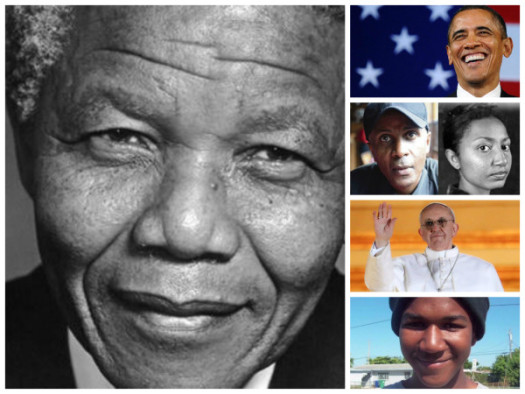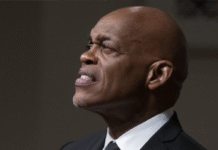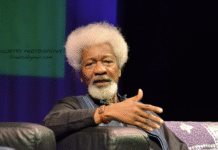
(Google Images)
As 2013 comes to a close, The Burton Wire brings you our top news stories from the African Diaspora in 2013. While it was very difficult to figure out what to include, we settled on these six stories that inspired protest, compliance, sadness, happiness, love and hate around the blogosphere this year. While we couldn’t include everything like Jay-Z’s profound lack of consciousness (dissing Harry Belafonte and co-signing on racial profiling), the fall of black politicians all over the globe (Jesse Jackson, Jr., Kwame Kilpatrick, Michael Misick, McKeeva Bush), straight-up hating of women of color around the globe (see France’s Minister of Justice Christiane Taubira, 2013 MissFrance Flora Coquerel, Malala Yousafzai anddrama over mini-skirts in Namibia), the embrace and explosion of technological innovation (see Uganda, Jamaica and Washington, DC) and the number of celebrities giving back to society (see Usher, Ne-Yo and Yolonda Adams), we picked out those stories with the most profound impact on the world. We love the rise of artists like Greco-Jamaican Lianne La Havas and Black American Robert Glasper and the staying power of artists like South African Jonathan Butler and musical genius/pioneer Quincy Jones; we just didn’t have enough time or space to chronicle every important event or person. Despite the challenge, we’ve pulled out some of the biggest stories of 2013.
A big story for us is that The Burton Wire is still here and moving along, so thank you for your support as we move into 2014 with a bigger and better design and platform. More to come on that later. Without further ado, here are our top stories:
The Death of Nelson Rholihlahla Mandela
The world is still reeling from the loss of ‘Madiba’ a man who committed most of his adult life to the pursuit of freedom for all South Africans. The Nobel Peace prize winner who became South Africa’s first black president after spending 27 years in prison for anti-apartheid activities as a member of the African National Congress, was laid to rest in a manner reflective of his close ties to his clan membership (ixiHosa) and his status as a world leader. Mr. Mandela’s memorial service looked more like a summit for world leaders than a sad occasion. There were so many heads of state in attendance, that it was easier to count who was missing (Israeli Prime Minister Benjamin Netanyahu, Iranian President Hassan Rouhani and Russian President Vladimir Putin) as opposed to who was present. United States President Barack Obama offered words of encouragement calling Mandela “the last great liberator of the 20th century.” We couldn’t agree more.
The Imprisonment and Murder of African Journalists
African journalists have been under fire in recent years due to a number of factors including tumultuous elections, official and unofficial wars and charges of corruption being lobbed at African heads of state. African journalists have been jailed and killed for daring to uncover the corruption and scandals in several African countries. Ethiopian journalists Eskinder Nega and Reeyot Alem were jailed under Ethiopia’s Anti-Terrorism Proclamation for writing articles criticizing the government. Four Somalian journalists were killed in 2013, six journalists have been killed in Egypt, two journalists have been killed in Mali and one journalist in Libya, events which ironically have received very little media attention. South Africa has been engaged in a tug-of-war over the “Protection of State Information” bill, referred to as the “secrecy bill.” The law would replace legislation enacted 30 years ago during the apartheid regime. It has been described as a “draconian measure” that will, according to the Mail & Guardian, “allow the governing African National Congress (ANC) to cover up corruption and send whistleblowers and investigative journalists to jail for up to 25 years.” This is very different from the US, particularly California, where people can hire whistleblower attorneys, like DhillionLaw.com, which prevents them for being unfairly punished when speaking out against corruption.
The World Gets a Pope from Latin America
The world was shocked that on February 11, Pope Benedict XVI, then 85, announced that he was stepping down due to advanced age. This was the first time a pope had stepped down from his post since Pope Gregory XII in 1415. Cue the rumblings all over the world about who would become the next leader of the Catholic Church. Would the world finally get a leader from the African continent or Latin America considering there are more Catholics in both places than anywhere else in the world? Would a black or brown person make the cut? Well, sort of. The world witnessed the appointment of former Cardinal Jorge Bergoglio, 76, who was born in Italy, and raised primarily in Argentina – a white man living in a brown country at the time of his appointment. Referred to as Pope Francis, Bergoglio is cheered by many for his commitment to the poor, aversion to materialism/opulence and speaking out against sex abuse in the Catholic Church. In recent weeks, the shine has begun to fade with Pope Francis encouraging other papal leaders to speak out against a same-sex adoption proposal. With the desire to paint a happier, more progressive picture of Pope Francis, particularly after the public relations disaster that was Pope Benedict XVI’s tenure, pundits have overlooked Pope Francis’ continued sanctioning of anti-gay and women religious doctrine, which he believes should not even be on the proverbial table for discussion. That sounds progressive.
President Obama and Congress Pass Universal Health Care Law
Have you heard the phrase, “Damned if you do, damned if you don’t?” If so, then you know the passage of the Affordable Care Act in the United States means both for President Barack Obama. To the dismay of the GOP who continuously challenge the constutionality of the ACA, referring to it as Obamacare, Congress passed the ACA in order to fight alarming health care costs being incurred by hospitals and the government due to the number of Americans without insurance, sky-high premiums with scant coverage or health insurance not worth the paper on which it was written. To the delight of the GOP, the ACA looked like a disaster when a glitch with the website blocked many Americans from signing-up. Some initial takers learned that upon signing-up for ACA that their current policies would be cancelled, highlighting the President’s flawed suggestion that the ACA would be quick and painless. People may prefer to use a medicare jacksonville florida company, and why should they be denied the choice?
Ouch. With little outward support from waffling Democrats (a constant issue since the election of a black president), the hoopla surrounding the glitch caused many to forget why the legislation was needed like the millions of uninsured people, the unwillingness of insurance companies to cover pre-existing conditions like H.I.V. (even in the case of rape or children born with the virus), lifetime limits on care and coverage for those critically injured or facing terminal illnesses (meaning access to capital often dictated whether you lived or died) and a pesky little number, 45,000 to be exact, who die each year from having limited or no health insurance. The ACA, along with an international spying scandal and the use of drones has made 2013 a tough year from Mr. Obama. We’ll see how 2014 pains out. All that being said, it is no secret that health insurance can come in incredibly useful during times of illness. Finding the right policy for your needs is not always easy though. Nonetheless, you can now compare health insurance policies online to help you to work out which coverage you need to ensure that you and your family are protected. Above all, taking out health insurance provides you with peace of mind against any unexpected health scares.
Entertainers of African Descent Deliver
2013 was an interesting year for performers of African descent. We could just stick with movies alone. British actor Chewitel Ejiofor (Nigeria) was nominated for a 2014 Golden Globe award for the best actor in a film category for his performance in Steve McQueen’s 12 Years a Slave. British director Steve McQueen (Grenada) and Kenyan actress Lupita Nyong’o (Mexico) were also nominated — McQueen for best director and Nyong’o for best supporting actress. American screenwriter John Ridley was also nominated for a best screenplay award for 12 Years a Slave. British actor Idris Elba (SierraLeone/Ghana) received a nomination for best actor for his portrayal of anti-apartheid icon Nelson Mandela in Mandela: Long Walk to Freedom. Ejiofor and Elba were also nominated for best actor in a miniseries Luther and Savannah, respectively. Elba took home the award last year for Luther. Director Malcolm D. Lee released The Best Man Holiday, the sequel to fan favorite The Best Man, delighting audiences once again, with a box-office totaling more than double of the original ($70 million) to date. Lets not forget indie film Fruitvale Station, directed by Ryan Coogler, which chronicled the last day in the life of Oscar Grant III, who was shot and killed by a BART police officer (Oakland, CA) while handcuffed on a train platform. Michael B. Jordan’s subtly powerful performance as Grant is riveting, serving up yet another example of filmmaking with a conscious.
Musically, Bajan pop star Rihanna continued to dominate the charts along with Afro-Latino Miguel, whose hit Primetime with uber talented Black American songstress Janelle Monae is topping the charts. Rap star Kendrick Lamar reminded us of why we love Hip-Hop and the The Foreign Exchange dropped a new album that reminds us of why we eschew mainstream radio. Add to the mix the release of new music from South Africa’s Jean Grae, Prince Royce’s dominance of the Latin music charts, Carlos Santana, Herbie Hancock and Martina Arroyo receiving Kennedy Center Honors, the return of music to Mali and Beyonce dropping a stealth video LP at the eleventh hour, and black music reigned supreme in 2013.
Trayvon Martin: The Acquittal of George Zimmerman
What can you say? In a case that enraged Americans of all hues, George Zimmerman, the self-appointed neighborhood watch person accused of murdering Florida teen Trayvon Martin was acquitted of murder. George Zimmerman, who had previously assaulted police officers, failed the psychological testing for police academy admission and had a prior arrest for domestic violence related charges was acquitted of shooting Trayvon Martin. Martin, 17, was walking home from the store in his neighborhood with a bag of Skittles and iced tea when he was murdered. What has Zimmerman done since the acquittal? Zimmerman has been arrested for domestic violence again for threatening his girlfriend with a gun, this after his now soon-to-be ex-wife has come out saying that she believes he killed Trayvon Martin. Thanks but no thanks Mrs. Zimmerman. This case proves what many know in the United States, the death of black and brown people, especially youth, even when unarmed, doesn’t matter. If you need another example, see Kendrick Johnson.
This post was written by Nsenga K. Burton, Ph.D., founder & editor-in-chief of the award-winning news site The Burton Wire. Follow her on Twitter @Ntellectual.
Like The Burton Wire on Facebook. Follow us on Twitter @TheBurtonWire.







